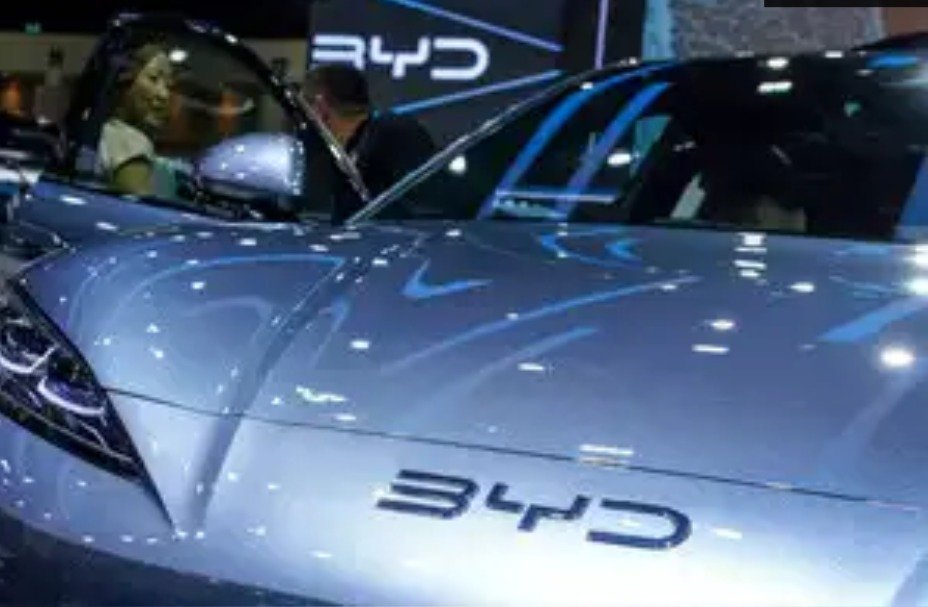India’s Strategic Approach to Foreign Investments
India has taken a firm stance on its foreign investment policies, particularly regarding Chinese automakers. Commerce Minister Piyush Goyal recently confirmed that India is restricting market access to BYD Co., a major Chinese electric vehicle (EV) manufacturer, while actively inviting investments from Elon Musk’s Tesla Inc.
Speaking at the India Global Forum in Mumbai, Goyal emphasized the importance of safeguarding India’s strategic interests. “India has to be cautious about its strategic interests, who we allow to invest,” he stated. When specifically asked about BYD’s entry into the Indian market, he confirmed, “As of now, it is a no.”
Rejection of BYD’s Investment Proposal
India had previously rejected a $1 billion investment proposal from BYD, which aimed to partner with a local entity for establishing manufacturing operations. This rejection aligns with the government’s broader policy of scrutinizing Chinese firms and limiting their expansion in India. Similarly, Great Wall Motor Co., another Chinese automaker, exited the Indian market after failing to secure regulatory clearances.
Concerns Over Chinese Investments
Indian authorities have expressed skepticism regarding Chinese companies due to multiple factors:
Opaque Ownership Structures: Many Chinese companies operate under complex ownership models, making it difficult to determine ultimate control. Indian officials fear that these firms may have direct or indirect links to the Chinese Communist Party (CCP) and the Chinese military.
National Security Risks: Given geopolitical tensions between India and China, including border disputes and previous cybersecurity concerns, India remains cautious about permitting large-scale Chinese investments in key industries.
Non-Market Economy Practices: China’s economic model includes heavy subsidies for manufacturers, loan write-offs, and other forms of state support, which are viewed as unfair competitive advantages that distort global markets.
India’s Shift Towards Tesla and Western Automakers
While keeping Chinese automakers at bay, India is actively working to attract Tesla and other global EV manufacturers. The government has introduced policies to encourage foreign direct investment in the automotive sector, particularly in electric mobility.
Tesla has long shown interest in entering the Indian market but faced challenges related to import duties and local production requirements. However, with recent policy shifts, India appears eager to accommodate Musk’s company. Reports suggest that Tesla is exploring opportunities to set up manufacturing facilities in India, which could significantly boost the country’s EV sector.
Policy Changes Favoring Global EV Investments
To facilitate investments from Tesla and other global players, India has introduced several key measures:
Lower Import Duties: The government is considering reducing tariffs on EV imports, provided that manufacturers commit to local production.
Production-Linked Incentive (PLI) Scheme: The PLI scheme provides financial incentives for companies investing in manufacturing and innovation in India.
Infrastructure Development: India is investing in charging networks and battery production facilities to support the growth of the EV industry.
Implications for India’s Auto Industry
The exclusion of Chinese companies like BYD and Great Wall Motor, coupled with efforts to attract Tesla, signals a significant shift in India’s trade and investment strategy. This move is expected to:
Encourage Domestic Manufacturing: By restricting Chinese firms and promoting Western automakers, India aims to develop its own EV production capabilities.
Strengthen Economic Ties with the U.S. and Europe: Favoring Tesla and other American or European companies aligns with India’s broader economic and geopolitical strategies.
Enhance National Security: Limiting Chinese investment reduces potential security risks associated with foreign ownership in critical sectors.

